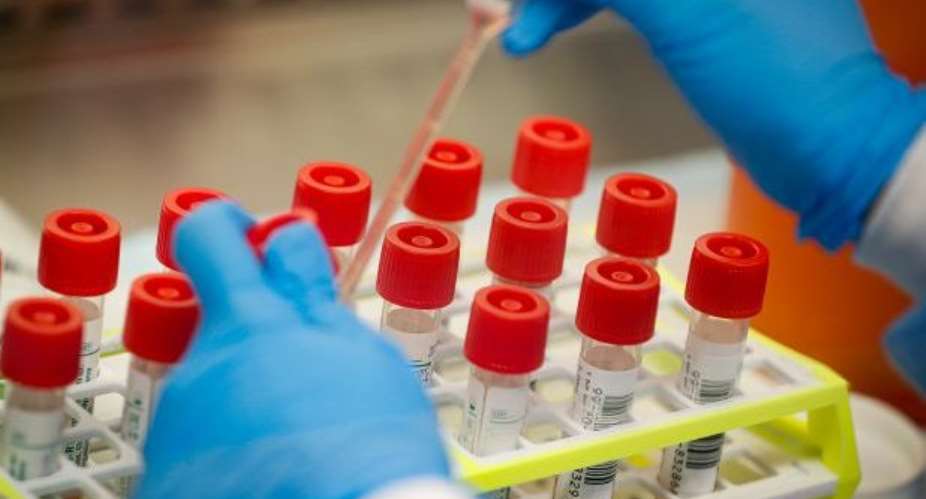His Excellency, President Nana Addo Dankwa Akufo-Addo in his usual inspiring and assuring speech and tone delivered the 5th address to the nation on the status of COVID-19 on the 5th of April 2020 where he outlined a number measures to contain the COVID and urged citizens to as usual be patriotic and do their part to defeat the virus.
All citizens of Ghana have a moral and legal obligation to do their best to support efforts from state and non-state actors to collectively defeat the virus so that, life can go back to normal Before Corona (BC).
Let us all remain calm, practice the protocol and be vigilant in supporting the Ministry of Health and the Ghana Health Service to arrest this situation.
By this write-up, RISE-Ghana is seeking to play its role a Corporate citizen and Civil Society to achieve two main objectives:
- Encourage responsiveness and accountability by Duty Bearers in charge of affairs in the Upper East Region to deliver their mandate to the fullest.
- Encourage the private sector to support the efforts like is done in other regions.
- Encourage all to citizens to spread calm, avoid panic but hold Duty Bearers accountable by asking questions and demanding excellence.
An interview granted by the Honourable Upper East Regional Minister, Tangoba Abayage indicated that the Upper East Region has recorded its first case of Covid-19 involving a 33 year old pregnant woman with no travel history out of the country who returned to Bolgatanga from Takwa on 27/03/2020. The woman visited the Bolgatanga Regional Hospital On 28/03/2020 with symptoms consistent with COVID-19. In line with protocol, nasal swaps (samples) were taken and sent to the Kumasi Centre for Collaborative Research with result turning out positive on the 03/04/2020.
Sadly, the patient absconded from the health facility and returned to her home within the Bolgatanga municipality with the support of the husband.
The Minister further narrates that, the victim’s house was put under surveillance and movement to and from restricted. This may appear a tactical and good move, but on a closer look, a very dangerous approach. Standard practice requires the woman, her husband and others she may have contacted be kept in places with private baths and toilets to safeguard those who may be negative, was this the case?
While the Hon, Minister is appealing for citizens to remain calm and providing the necessary assurance which is commendable, a release to the media reported by mynews.gh the Honourable Minister said “based on additional information gathered from GHS, the patient is currently on admission at the Regional hospital pending additional laboratory test next week to declare her fully recovered from COVID-19 before discharge.” The Minister also assured the public that, the woman is clinically stable and recovering from the mild version of COVID-19 which can be handled at home. There are many questions we need answers to as citizens as hope and assurance alone can not save us from COVID-19.
Reports also indicate the Clients was discharged without appropriate briefing and exit interview on how to self-isolate and that the Maternity, Neonatal Intensive Care, Gynecology units of the regional hospital has been closed down for fumigation, all patients discharged and all staff asked to self- isolate for samples to be taken on Monday 6th April 2020 for testing-this begs the following questions:
- Where are the patients discharged to, discharged to their homes, based on what risk assessment?
- What if the staff decide not to self-isolate, what measures are in place to enforce this?
- What is the Regional Coordinating Council doing to secure the support of Private Sector (Hoteliers) and CSOs to support COVID-19 prevention efforts?
- What plans exists to locate people who travelled with the woman from Takwa (local government authorities from Takwa are denying this claim).
- What are the plans to protect health workers in the region beyond the national directives on tax and allowances in these difficult times?
- What measures are in place for handling, discharging and re-integrating survivors and suspects of COVID-19 into their communities?
- What security measures are in place to enforce quarantines?
Thank you.
Yours sincerely,
Signed
Awal Ahmed Kariama
Executive Director





 Former Kotoko Player George Asare elected SRC President at PUG Law Faculty
Former Kotoko Player George Asare elected SRC President at PUG Law Faculty
 2024 elections: Consider ‘dumsor’ when casting your votes; NPP deserves less — P...
2024 elections: Consider ‘dumsor’ when casting your votes; NPP deserves less — P...
 You have no grounds to call Mahama incompetent; you’ve failed — Prof. Marfo blas...
You have no grounds to call Mahama incompetent; you’ve failed — Prof. Marfo blas...
 2024 elections: NPP creates better policies for people like us; we’ll vote for B...
2024 elections: NPP creates better policies for people like us; we’ll vote for B...
 Don’t exchange your life for wealth; a sparkle of fire can be your end — Gender ...
Don’t exchange your life for wealth; a sparkle of fire can be your end — Gender ...
 Ghana’s newly installed Poland train reportedly involved in accident while on a ...
Ghana’s newly installed Poland train reportedly involved in accident while on a ...
 Chieftaincy disputes: Government imposes 4pm to 7am curfew on Sampa township
Chieftaincy disputes: Government imposes 4pm to 7am curfew on Sampa township
 Franklin Cudjoe fumes at unaccountable wasteful executive living large at the ex...
Franklin Cudjoe fumes at unaccountable wasteful executive living large at the ex...
 I'll 'stoop too low' for votes; I'm never moved by your propaganda — Oquaye Jnr ...
I'll 'stoop too low' for votes; I'm never moved by your propaganda — Oquaye Jnr ...
 Kumasi Thermal Plant commissioning: I pray God opens the eyes of leaders who don...
Kumasi Thermal Plant commissioning: I pray God opens the eyes of leaders who don...
